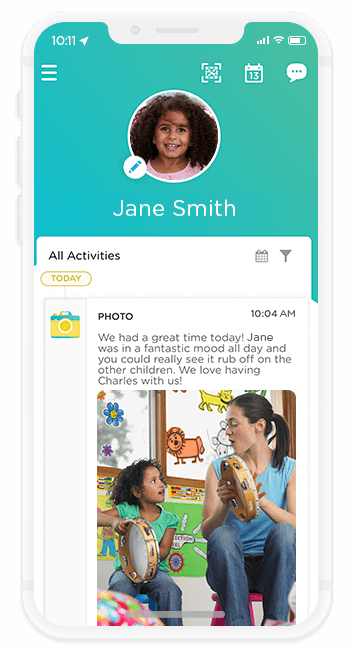
As schools begin the school year with either in-person or virtual learning programs, educators and school administrators are realizing that cultivating parent engagement will require an innovative approach.
School events such as drama productions, dance and music performances, sports and other extracurriculars have always been great for connecting with parents – but in the new environment, many schools are choosing to reduce or eliminate large gatherings, place restrictions on foot-traffic entering their facilities, or transition entirely to a remote learning education model.
Fewer in-person interactions can make it more challenging for educators to build positive relationships with parents, facilitate parent participation in class activities, and provide parents with essential resources to help their child succeed academically.
To meet these challenges, educators must adopt new tactics and techniques to stimulate and support parent engagement in schools, and build successful partnerships that drive student success.
What is Parent Engagement?
Parent engagement is the ongoing process of communicating with parents, involving them in their child’s education, and partnering with them to support learning and developmental outcomes for their child.
Teachers support parent engagement by building relationships with parents, maintaining a consistent flow of information, sharing academic updates and progress reports, and connecting families with resources to support their child’s learning.
Procare is here to help.
We know the business of child care. For more than 30 years we’ve been guiding child care professionals just like you to help stay connected and in control.
Why is Parent Engagement Important?
As kids get back to the classroom in 2020, there are two main reasons why it’s more important than ever to maintain communication with parents through effective engagement.
Supporting Learning Outcomes
With many kids transitioning to remote learning, parents are concerned about how their child’s education will proceed outside the classroom. Through effective parent engagement, schools can connect parents with vital information and resources to support child learning outcomes.
Community Safety
Now more than ever, schools need communication and cooperation from parents to continue providing education services while reducing the spread of coronavirus. Schools will be implementing new policies and procedures to keep kids safe, and they’ll need to establish new parent engagement channels to spread the word and encourage compliance.
How is COVID-19 Affecting Parent Engagement in Schools?

The traditional methods used by teachers and school administrators to communicate with parents and foster parent engagement in schools are being disrupted by COVID-19 in several ways.
New Education Settings
The transition from in-person to remote learning is changing how teachers and parents engage with each child’s learning. With many schools now delivering remote learning programs, kids are missing out on in-person interactions with educators. For parents to fill that gap, they need effective support from teachers – and so far, many aren’t getting it.
In a recent study of parent experiences with remote learning programs, 67 percent of parents felt more strongly connected to their child’s daily learning but only a third of parents reported having regular access to teachers during the study period. As a result, parents may not be getting the resources they need to support their kids during this time.
Fewer In-Person Interactions
Precautions against the spread of coronavirus is limiting in-person interactions between teachers and parents. While many schools have moved to 100 percent remote learning, others have placed limitations on foot traffic, volunteering, parent participation and large group gatherings like PTA meetings. As a result, teachers have fewer opportunities to connect with parents and build relationships that lead to a successful parent engagement partnership.
The Digital Accessibility Barrier
Fewer opportunities for in-person communication between teachers and parents in the school environment means that teachers must connect with parents through digital channels – which brings its own challenges and barriers to successful engagement.
Access to digital devices is far from equitable for students and parents – a survey by Louisiana’s State Department of Education found that just 66 percent of students had internet access at home, 78 percent had access to a phone that could be used for conference calls, and 75 percent had access to a computer or tablet to participate in video-based lessons.
As part of their commitment to supporting child learning outcomes, teachers and school administrators must find new ways to connect with parents and provide them with the information, resources and feedback they need to play a positive role in their child’s education.
5 Strategies for Increasing Parent Engagement in Schools

Build Communication Systems that Work
In 2020, teachers can no longer rely on in-person communication to drive parent engagement. Instead, teachers and school administrators must create new systems and platforms for sharing important information, updates and child-specific progress reports with parents. In doing so, schools should consider factors like:
- Accessibility – Providing information in multiple formats and languages can help ensure that information and updates are available for parents from diverse cultural and ethnic backgrounds.
- Preferred Channels – Teachers should make the effort to connect and communicate with parents on their preferred channels – email, SMS text message, phone calls, or face-time.
- Direct & Mass Messaging Capabilities – An effective communication system should combine mass messaging capabilities – the ability to send information, updates and newsletters to large groups of parents or the entire school community – and direct messaging capabilities that support one-on-one communication with parents.
Schools can adopt software-based parent engagement solutions to coordinate and track communication with parents across multiple channels from a single platform. Procare’s parent engagement app offers direct messaging to support relationship-building with parents and mass communication capabilities for sharing updates or emergency alerts.
Nurture One-to-One Relationships
Effective parent engagement starts with the development of positive, trusting relationships between parents and teachers.
In the past, “meet the teacher” events, PTA meetings and parent-teacher interviews provided the venue for parents and teachers to learn more about each other and find ways to support child development through effective collaboration.
Now, teachers must take the initiative to build those meaningful connections with parents through other channels. Teachers can:
- Introduce themselves to parents by phone or invite parents to a video “meet & greet”
- Share information about themselves, such as their own educational background, favorite subjects, passions and interests, etc.
- Ask parents to share information about their child’s strengths, weaknesses, preferences, etc.
- Ask parents directly what resources they need to help support their child’s learning
- Talk to parents about the importance of parent engagement and ask for their partnership in maximizing their child’s learning and development
- Encourage parents to contact them directly with questions or concerns about their child’s learning
Keep the Conversation Going
To effectively support parent engagement in schools during remote learning, teachers need to communicate with parents on a regular basis, both with information about classes and individualized updates on student progress. To avoid overwhelming parents with information, teachers should communicate on a regular basis through concise messages instead of sending large weekly updates.
When teachers share the right information with parents at the right time, parents are empowered to take actions that positively impact their child’s learning. Teachers can maximize their impact by sharing:
- Weekly lesson plans that detail what kids will be learning that week
- Learning goals for each lesson
- Extra activities that parents can do to help prepare their kids for weekly lessons
- Extra activities that parents can use to help kids review and reinforce lessons
Teachers also need to connect with parents on an individual basis. In these conversations, teachers can share progress updates, recent grades and learning outcomes with parents. Parents can ask questions, request additional resources, and offer their feedback on new communication and learning strategies.
Connect Parents with Resources
In addition to supporting each child’s learning path, teachers can play a role in connecting families with community resources like:
- Meal distribution centers or food banks
- Unemployment services
- Child care services
- Adult education and vocational training
- Housing and shelters
- Financial assistance
These critical resources can provide solutions to underlying issues that impact a child’s academic achievements. Teachers should work to identify the needs and challenges that families face by building trust over time and encouraging reciprocal communication.
Be Flexible and Offer Personalized Solutions
In today’s environment, parents without access to a computer and strong internet connection are at risk of falling through the cracks when it comes to parent engagement. To effectively reach the entire school community, teachers and school administrators must be flexible and offer personalized communication solutions that work for families.
Teachers must be prepared with strategies for reaching parents who may live without computers, without internet, without voicemail, or without a home phone line. School administrators must work to understand the needs of their diverse school communities and empower teachers with the resources to engage every parent.
Boost Parent Engagement in Your School with Procare’s Parent Engagement App

Procare’s parent engagement app makes it easy for teachers and school administrators to build trust with parents, coordinate communications across multiple channels, and drive parent engagement with one-to-one and mass communication capabilities.
The app lets school administrators promote virtual events, send out weekly or monthly newsletters, and hold teachers accountable for doing their part to support parent engagement in schools. Teachers can easily share class information and learning outcomes with parents, track attendance in remote learning sessions, and connect parents with resources to support their physical wellbeing and their child’s academic success.
Procare is empowering leaders in education to maximize their impact on student success this year through parent engagement.
Are you ready to start engaging more parents with Procare solutions?



